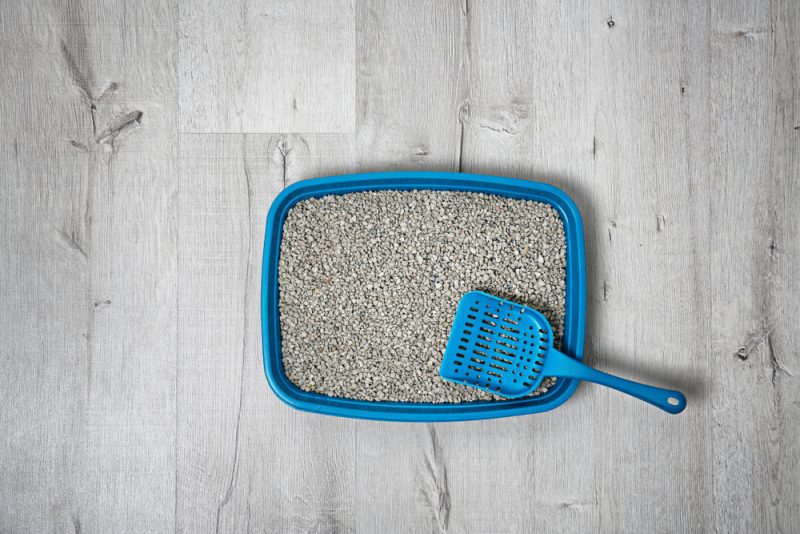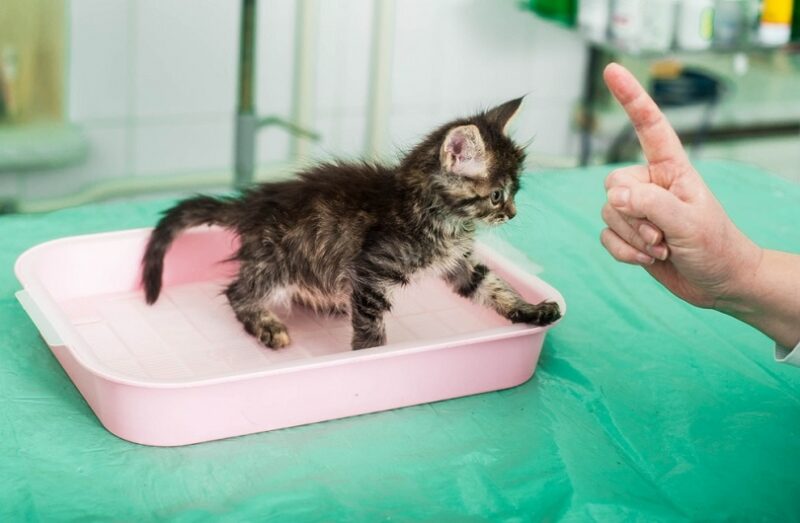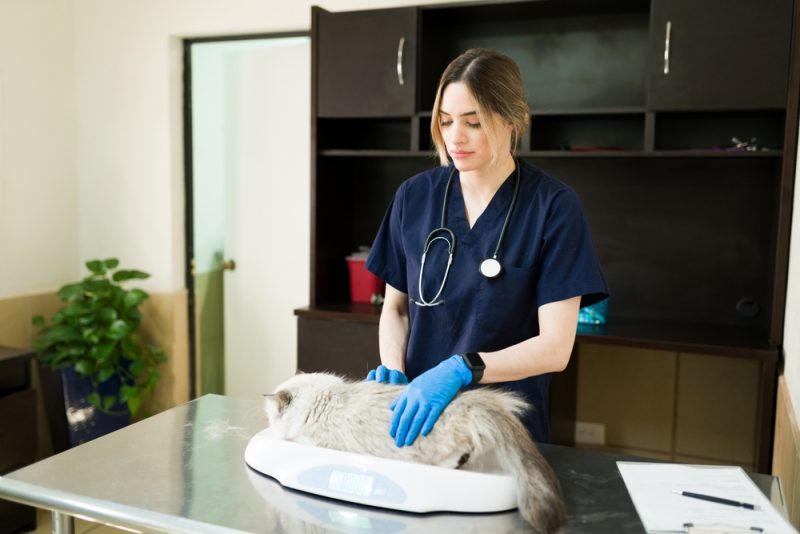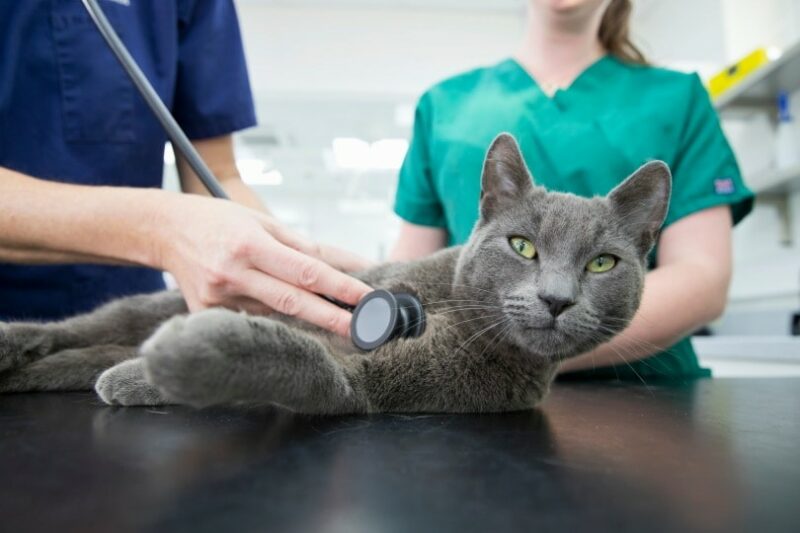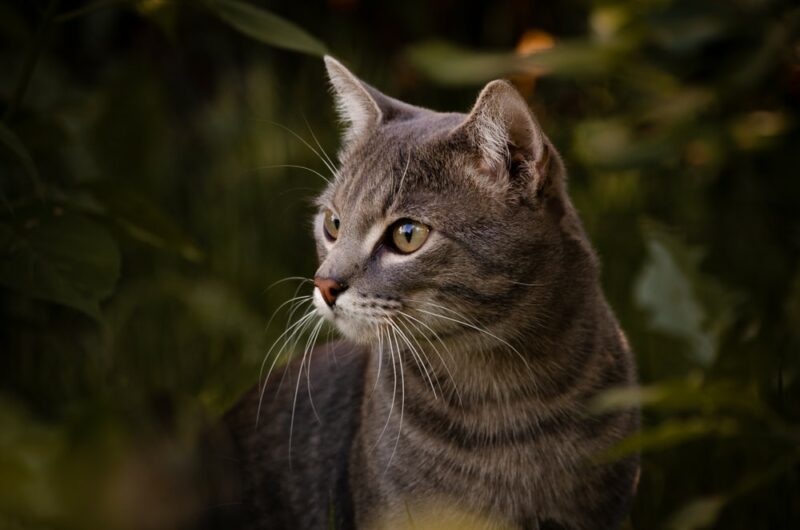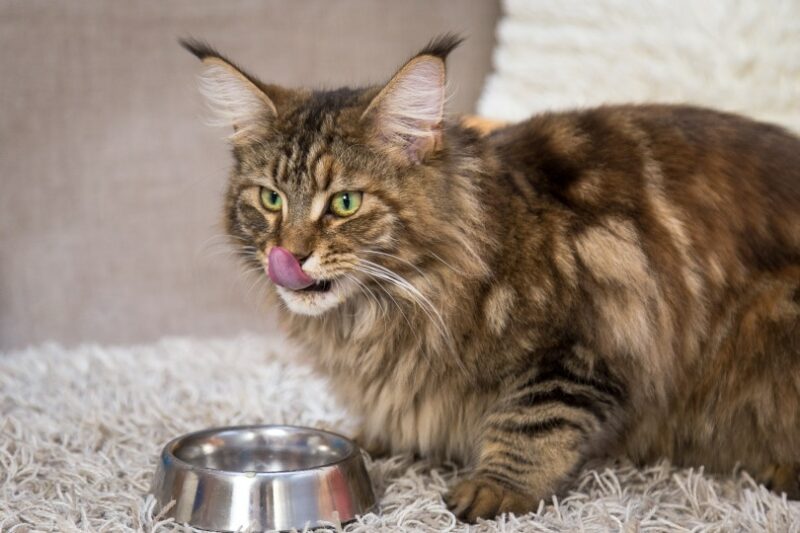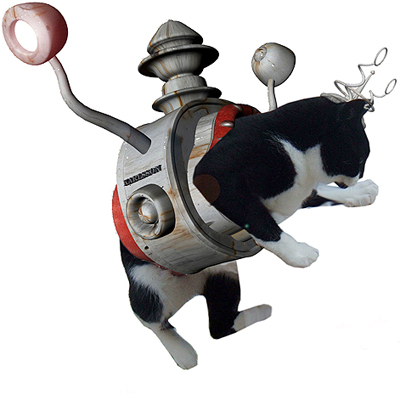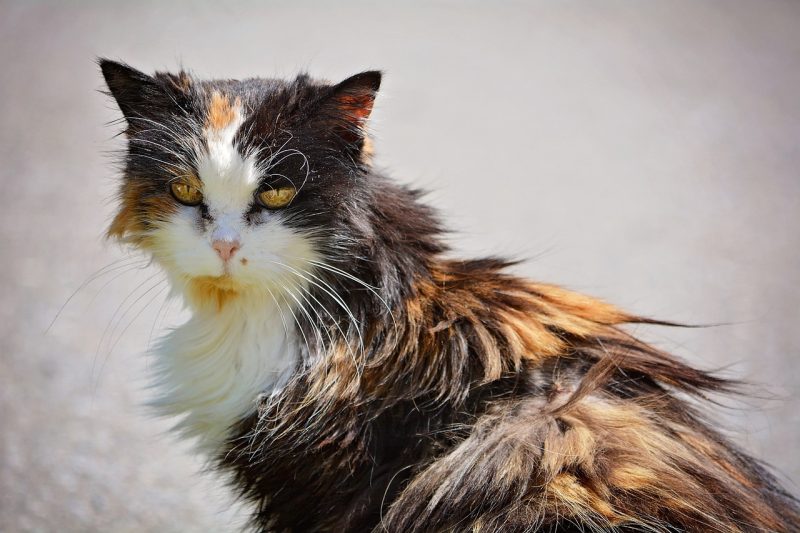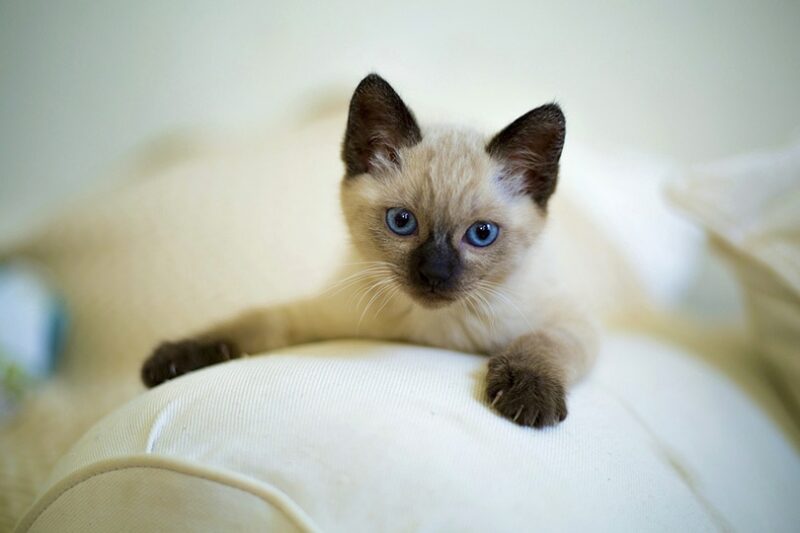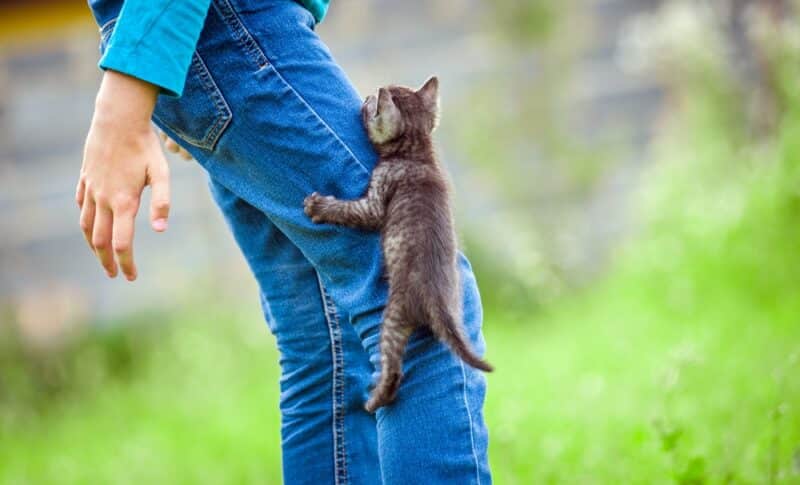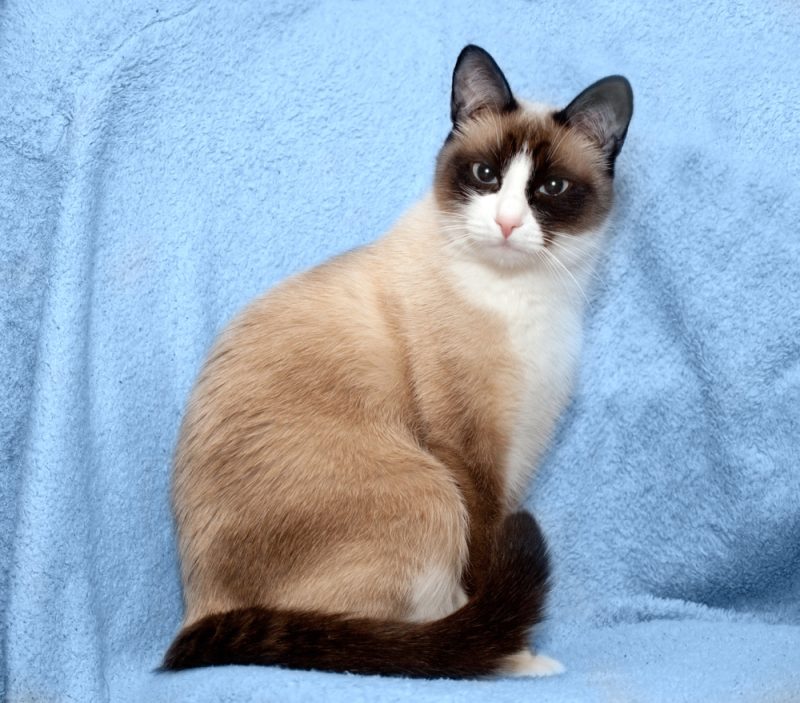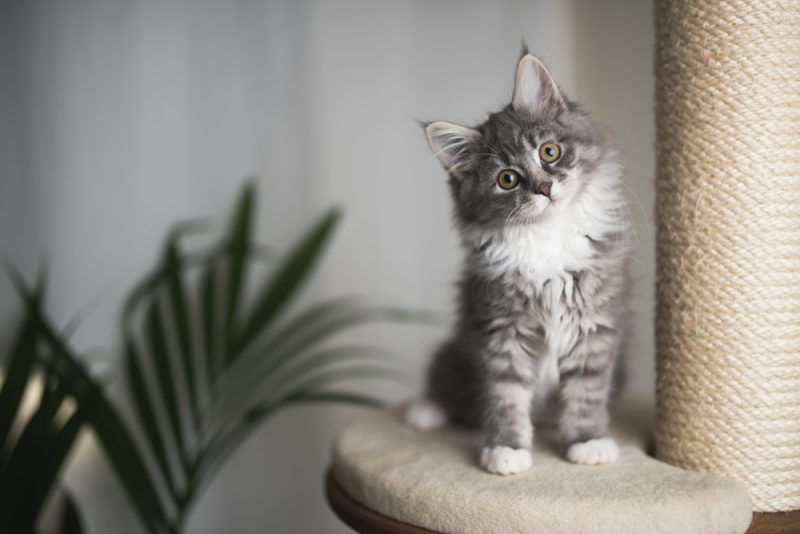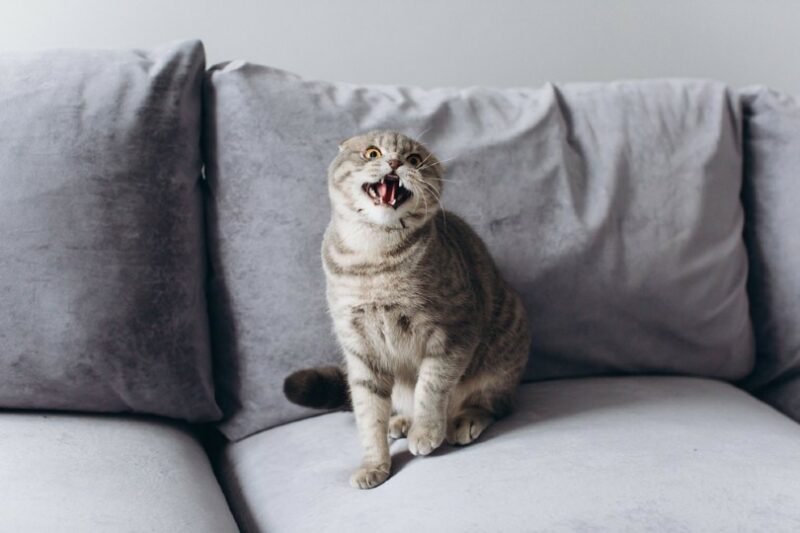Owning a cat is more than having a pet to cuddle while you watch television in the evenings; they require work and constant care. Cleaning your cat’s litter box isn’t a fun task, but one that you’ll need to do at least once a day to prevent odors, maintain hygiene and reduce the risk of infectious agents.
Failing to keep your cat’s litter box clean can cause them to urinate in your home instead of their litter box, and can potentially cause anxiety and stress in your cat. It’s safe to say that in order to give your cat the care they need, there are generally no days off from cleaning their litter box. However, it isn’t necessary to do a deep clean every day, so keep reading to find out when and how to clean your cat’s litter box.
Cleaning up after our pets is not the most enjoyable part of owning them. Despite keeping a clean litterbox, cat odors and stains may still exist around the house. Sometimes, even the best litter box setup needs extra help. If you're tired of dealing with bad smells from litter boxes, Hepper Advanced Bio-Enzyme Pet Stain & Odor Eliminator Spray can help with the worst pet stains and smells. Additionally, the Advanced Bio-Enzyme Cat Litter Deodorizer neutralizes odors upon contact. At Catster, we’ve admired Hepper for many years and decided to take a controlling ownership interest so that we could benefit from the outstanding designs of this cool cat company!Top Tip for Cleaning & Combating Tough Litter Box Smells
Image
Product
Details
Best Enzyme Cleaner
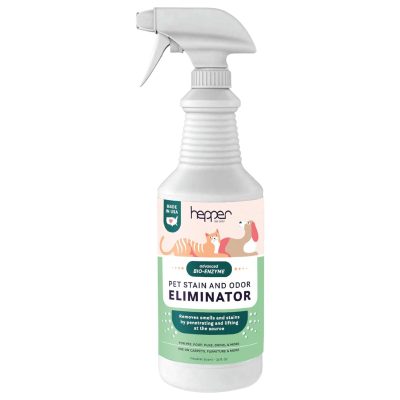
Hepper Advanced Bio-Enzyme Pet Stain & Odor Eliminator Spray
CHECK PRICE
Best Litter Additive
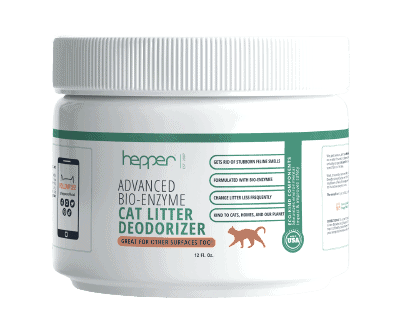
Advanced Bio-Enzyme Cat Litter Deodorizer
CHECK PRICE
It Depends on the Litter Type You Use
A factor that affects how often you’ll need to clean your cat’s litter box is the type of cat litter you use. There are traditionally two main types, and although their purpose is the same, they react to urine and odors differently.
Non-Clumping Cat Litter
Non-clumping litter is more affordable but needs to be changed more often because the ingredients, such as clay, wood, or corn, absorb the urine and smell. Although this type is less messy, the large granules usually don’t hold all of the urine, and some seep through to the floor of the litter box. It also becomes saturated faster.
Some types of non-clumping litter are more absorbent than others, so you’ll need to toss out and replace all the litter at least twice a week to every 10 days, depending on the instructions on the packaging.
Clumping Litter
Clumping litter lasts longer because it absorbs the urine and forms clumps that are easy to remove from the litter box without having to discard all of the litter. The clumping litter prevents urine from pooling at the bottom of the litter box, keeping the box clean for longer.

Other Factors That Affect How Often You’ll Need to Clean the Litter Box
How often you will need to clean a litter box will depend on several factors. The type of litter you use is one of them, as mentioned above, but the number of cats sharing a litter box is another. The more cats that use a litter box, the more frequently you’ll need to clean it. However, if you have several litter boxes around your home for your one cat, you won’t need to change them as often.
Another factor is your cat’s sensitivity. If your cat is put off by the slightest odor, you may need to clean their litter box each time they use it by scooping out the clumps and discarding them. (Note that some modern litter boxes will do this for you!)
If you are pregnant, you’ll want the litter box cleaned more often, but generally speaking, by someone else, as the risk for toxoplasmosis is high.
The 3 Signs to Watch For
1. Pee and Poop Clumps
In the case of clumping cat litter, owners may opt to clean their cat’s litter box each time their cat uses it to keep it clean throughout the day, or they may opt to clean it daily. One in the morning and once at night is often a good schedule, though whatever works best for you is the option you should choose.
Some cat owners rarely throw out the entire contents of their cat litter if they use clumping litter but rather top it up every 2–3 days. As you remove the clumps, the litter contents decrease, and if you don’t top it up often, there may not be enough litter to clump the urine and poop.
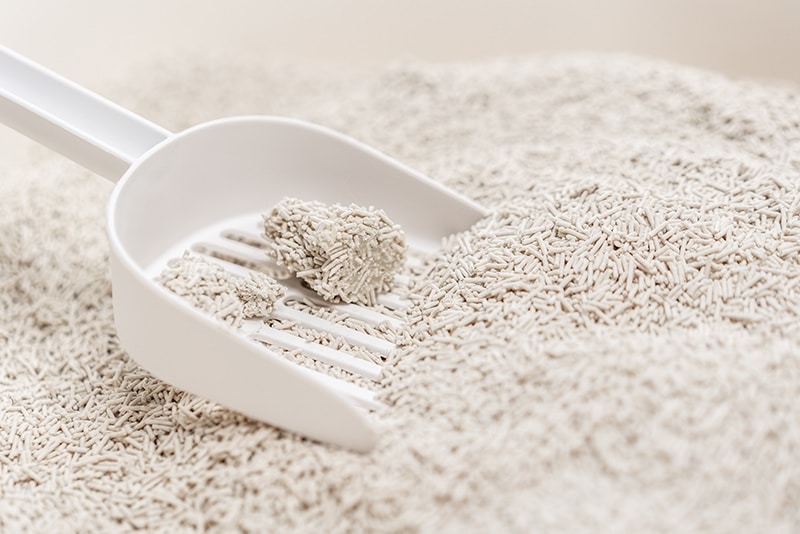
2. Odor
Many people don’t like to use scented litter as it can be overwhelming for their cat and cause them to stop using their litter box. Clumping litter absorbs urine and poop and seals in the odors. However, no litter can neutralize the smell 100%, so if your litter box is smelling, it’s time to scoop out your cat’s waste, as removing waste is the best way to remove the odor.
If you’ve removed all the clumps from your cat’s litter box and there is still an odor, it might be time to do a thorough clean.
3. Behavioral Changes
Not only is it important to remove clumps from your cat’s litter box for hygienic reasons, but because your cat may refuse to use it if you haven’t. If your cat has started to urinate and poop in your home instead of their litter box, it might be because you haven’t cleaned it in a while. Cats don’t like to use litter boxes with clumped waste in them and need you to remove the waste for them to feel comfortable in their box.
A dirty litter box can also cause a cat to become anxious, stressed, and aggressive. If you notice a change in their behavior, it might be time to give their litter box a good clean.
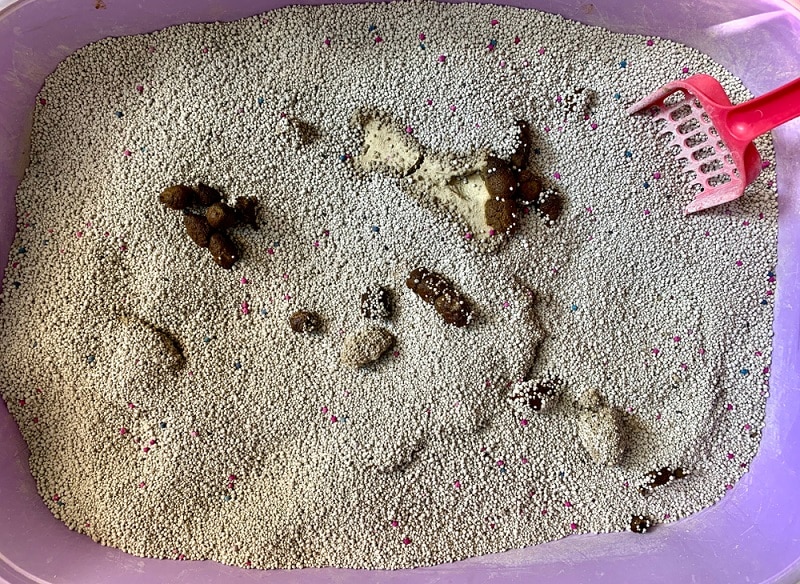
How Often Should I Do a Thorough Clean?
How regularly you clean the litter box depends on how many cats use that litter box, their sensitivity, and your schedule, but below are good guidelines to follow.
1. Scoop Out Clumps Daily
As we’ve mentioned above, it’s important to scoop out poop and urine clumps daily to keep your cat happy and comfortable. You can pick the times that work best for you, but removing clumps twice a day is a good guideline. If your cat is sensitive to odors and doesn’t like to use their litter box if there is any waste inside, you’ll need to remove the clumps each time they use their litter box or consider placing several litter boxes around your home.
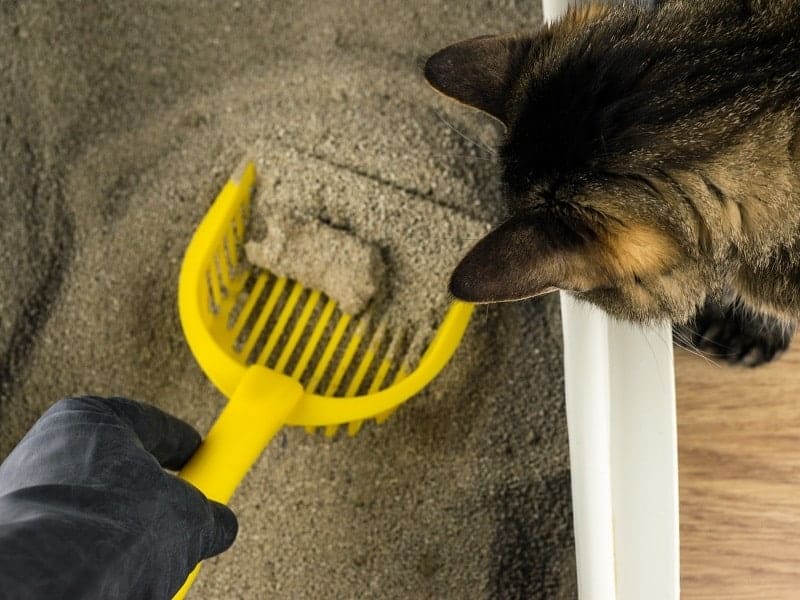
2. Do a Full Change Twice a Month
Although some cat owners don’t dump all their clumping litter out often, it is good to do so every other week. If you have non-clumping litter, you will need to discard all the litter and pour in new litter each time you change it, which will be every 2–3 days.
Clean your litter box by pouring all the litter into a garbage bag, making sure to scrape off any litter that might be sticking to the bottom. You can discard the litter along with your regular garbage. We don’t recommend pouring clumping litter into your toilet, even if it says that it is flushable. This can lead to clogging.
3. Rinse the Litter Box Twice a Month
A good rule of thumb is to scrub the litter box every time you do a full litter change. For litter boxes with clumping litter, this will be every second week to once a month. However, litter boxes with non-clumping litter should be washed more often, which is why many people prefer clumping litter—it requires less work.
Once you’ve emptied the litter box, wash it with warm water. Dry the litter box and sprinkle a bit of baking soda on the bottom to help with odor control. If you have another type of odor control product that is cat-friendly, you can use that instead. Pour in fresh cat litter as deep as your cat likes it, which is usually around 2–3 inches deep.
Make sure to clean around your cat’s litter box, too, as this will make your cat more comfortable, and will prevent dust or granules from being walked throughout your home.
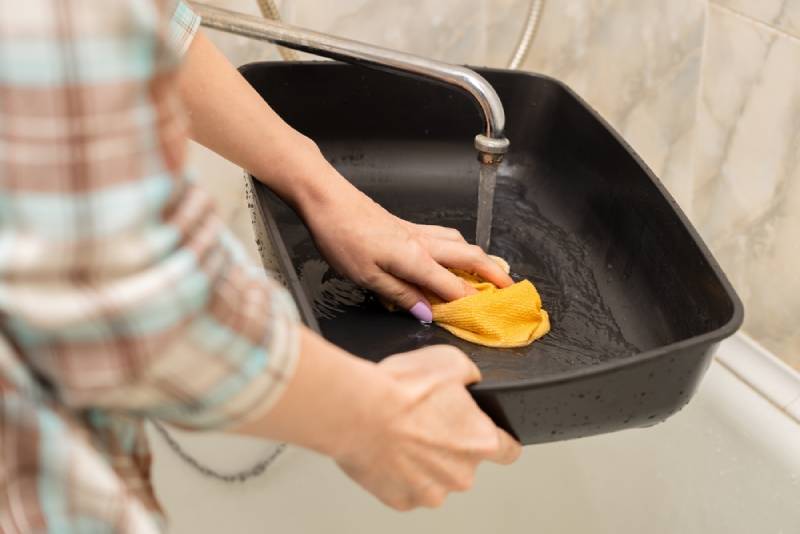
4. Scrub the Litter Box Monthly
Cat litter boxes are typically plastic, and bacteria like to hide in the little scratches that form at the bottom of the box, which is why it is necessary to give the litter box a deep clean each month. Cats also dig in their litter and cause dirtied litter to stick on the walls of the litter box. They may also urinate against the wall of the box or have diarrhea that may make a big mess.
Opt for a day when you’ll be discarding all the cat litter, and instead of rinsing the litter box out with warm water, use a soapy sponge dedicated to the litter box to get into all the corners and give the box a proper cleaning. Rinse it with hot water and leave it out to dry before adding new litter inside. Do not clean the box in any food preparation areas of the house or similarly clean areas.
5. Replace the Litter Box Yearly
It’s normal for a litter box to stink, even after you’ve washed it, because plastic holds an odor after excessive use, especially if it has scratches on it from the litter and your cat’s claws. If your litter box has a smell, your cat may no longer want to use it, and you’ll need to replace the litter box with a new one.
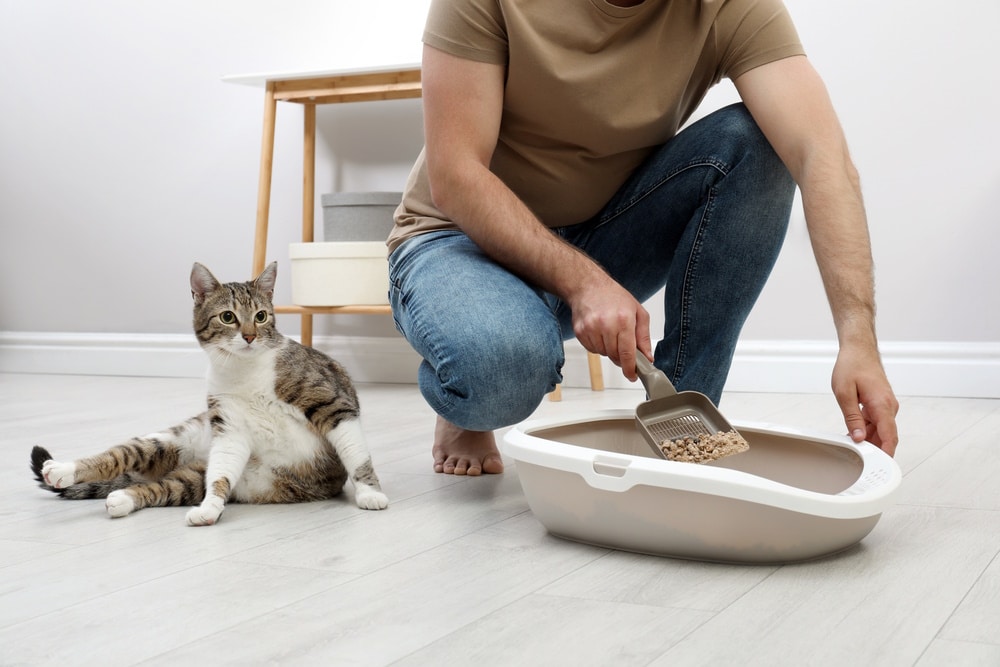
Frequently Asked Questions
Why Is It Important to Clean a Litter Box Frequently?
If you want your cat to use the litter box, the best thing you can do is keep it clean. However, it’s important to keep it clean for several other reasons, too.
Firstly, cats are happier when they have a clean environment and are less likely to feel stressed, anxious, and aggressive. Your cat may even eliminate outside of their litter box if their litter box hasn’t been cleaned in a while. The well-being of your cat should be your number one priority.
Secondly, a clean litter box will prevent bad odors. It is important for your home and for your cat to keep their litter box clean, as cats are sensitive to odors and will avoid the things that cause them. Dirty, uncleaned litter boxes are breeding grounds for parasites and bacteria, which are harmful to cats and humans if not cleaned often.
Lastly, you can tell a lot about a cat’s health by their toilet habits. If you have a clean litter box and your cat poops in random areas around your home, it could be a sign of a health issue. Scooping out clumps regularly also allows you to notice any blood in the poop, diarrhea, foul smells, or any other signs that could be an indication that something isn’t right with your cat.
How Many Litter Boxes Should I Have in My Home?
Cats don’t like to share litter boxes with other cats in the home, especially if another cat has recently used it. Although each cat may not use their own litter box, traditional thinking is that it is a good idea to have one litter box per cat in your home, as well as an extra one. Place these litter boxes away from each other so that there is always one nearby for when your cat needs to relieve themselves.
Keep the litter boxes in convenient but quiet places that are away from their food, water, and bed.
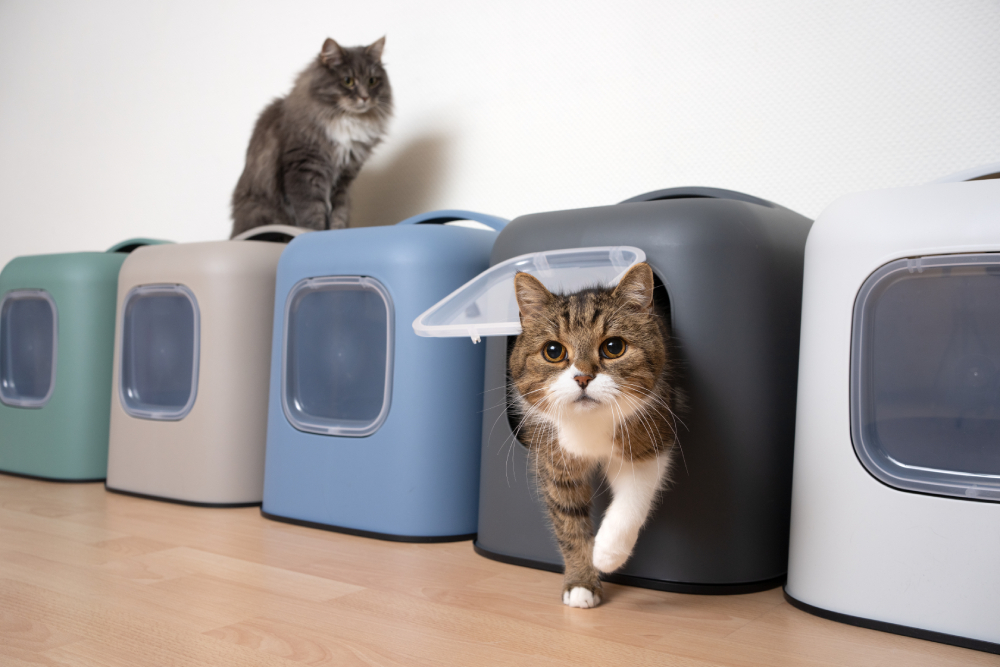
Why Do Some Cats Not Use Their Litter Box?
If you’ve cleaned the litter box or even replaced the old one with a fresh-smelling new one and your cat still won’t do their business in it, there might be another problem.
- The detergent you’re using to clean the litter box is too strong, and your cat is put off by the smell.
- Your cat doesn’t want to share the litter box with other cats.
- The litter you’re using is uncomfortable under your cat’s paws, or your cat doesn’t like how it feels.
- Your cat has a health issue, such as dementia or arthritis.
- The litter box is too small for your cat.
- There is too much or too little litter in the box.
- Your cat doesn’t like the smell of the litter.
- Your cat doesn’t like the lid on their litter box.
- Your cat is being bullied by other pets, and they don’t feel safe enough to use the litter box.
Conclusion
Litter boxes with clumping litter as a rule of thumb should be cleaned twice a day and have a full litter change and rinse every other week. Litter boxes with non-clumping litter should be cleaned every 2–3 days. Cats are sensitive to odors, and many would rather eliminate outside of their litter box than eliminate in one that has waste in it.
You’ll need to clean the litter box more frequently if more than one cat uses the box or if you have a very sensitive cat. You can clean it less frequently if you have several litter boxes around your home for your one cat.
Read more about cat litter box issues:
- How to Litter Train a Kitten
- Is Your Cat Not Using the Litter Box? 6 Things to Know
- 6 Alternative Types of Natural Cat Litter
Featured Image Credit: New Africa, Shutterstock
